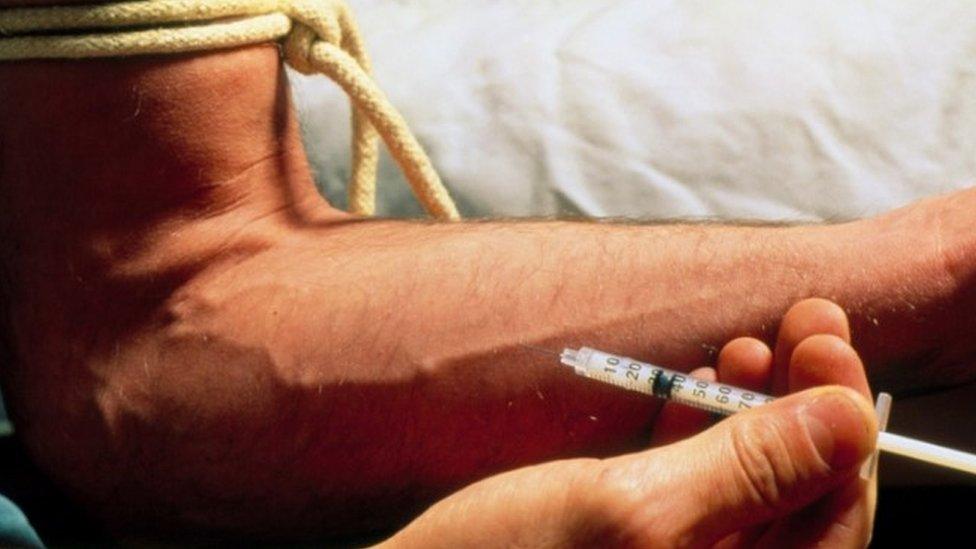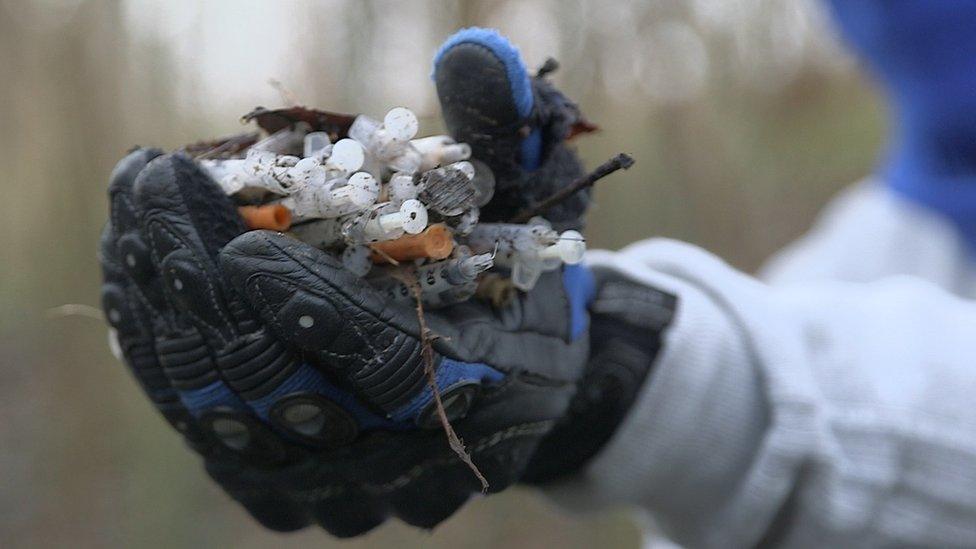Case examined for drug injecting area in Glasgow city centre
- Published

It is estimated that there are about 500 vulnerable drug users in Glasgow city centre
A substance abuse group is to explore the case for opening an injecting facility for drug users in Glasgow.
The Glasgow City Alcohol and Drug Partnership said about 500 vulnerable drug users injected in public places.
It said these people were responsible for the majority of discarded needles which posed a health risk and also contributed to public order problems.
The partnership will examine if an injecting area, like those in Europe, Canada and Australia, could help here.
If such a facility was approved, it would be the first of its kind in the UK.
The Glasgow City Alcohol and Drug Partnership (ADP) is a multi-agency group tasked by the Scottish government with tackling alcohol and drug issues.
'Safer communities'
ADP chair, Susanne Millar, said: "There are approximately 5,500 drug injectors in Glasgow with around 500 of these injecting in public in the city centre.
"While this is a tiny percentage of the city's population, it has a huge level of need and consists of a huge cost to the public purse.
"We need to make our communities safer for all people living in and visiting the city, including those who publicly inject."

Discarded needles are a problem to public health
ADP said the majority are people who injected drugs in public places experienced problems such as homelessness, mental health issues, recent imprisonment and poverty.
They were at heightened risk of blood-borne viruses, overdose and drug-related death, and other injecting-related complications such as serious bacterial infections.
The partnership said that in 2015 there was an HIV outbreak in Glasgow, with 47 new infections compared to the previously consistent annual average of 10.
'Decades behind'
There were also several other outbreaks of serious infectious diseases such as botulism and anthrax.
ADP will look at the case piloting a medically supervised injecting facility in Glasgow city centre, extending the existing opioid substitution therapy services to include heroin-assisted treatment and developing a peer support network for harm reduction.
Dr Emilia Crighton, director of public health at NHS Greater Glasgow and Clyde, and vice chair of the ADP, said: "We are decades behind other countries in the way we tackle this problem.
"Our ultimate goal is for drug users to recover from their addiction and remain drug free.
"However, until someone is ready to seek and receive help to stop using drugs it is important to keep them as safe as possible while do they continue to use drugs."